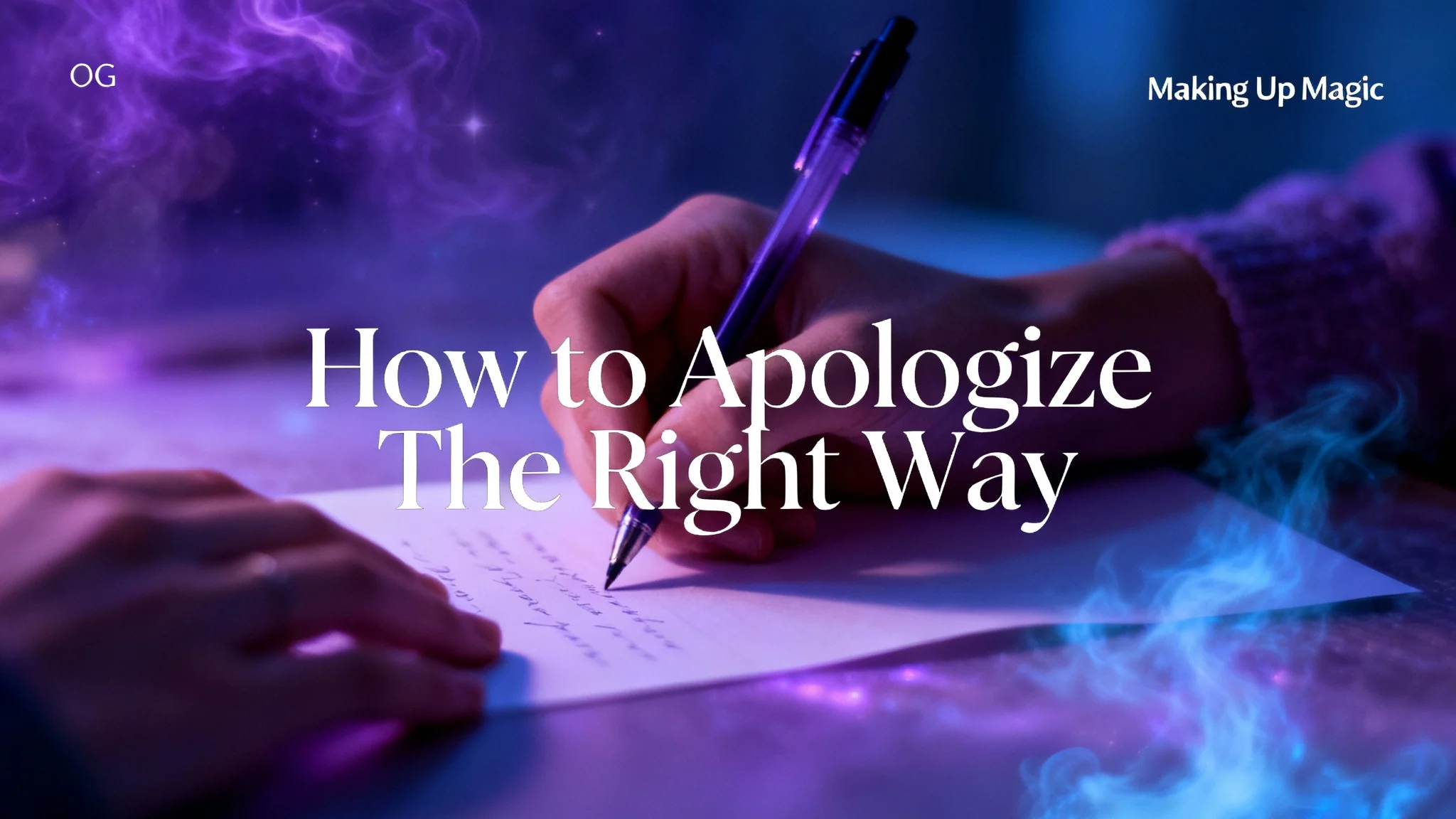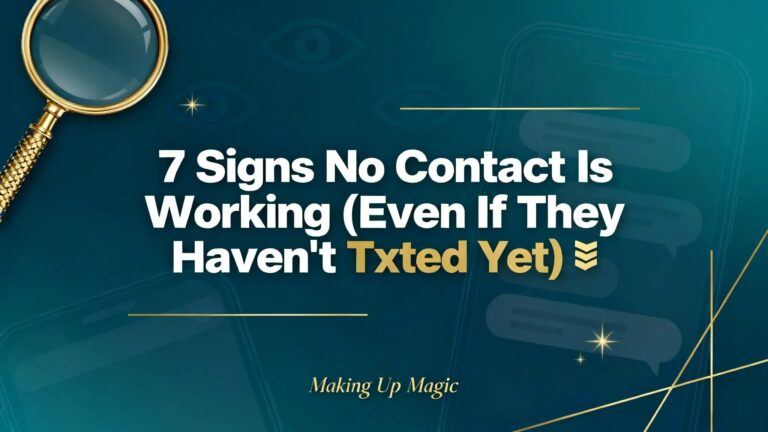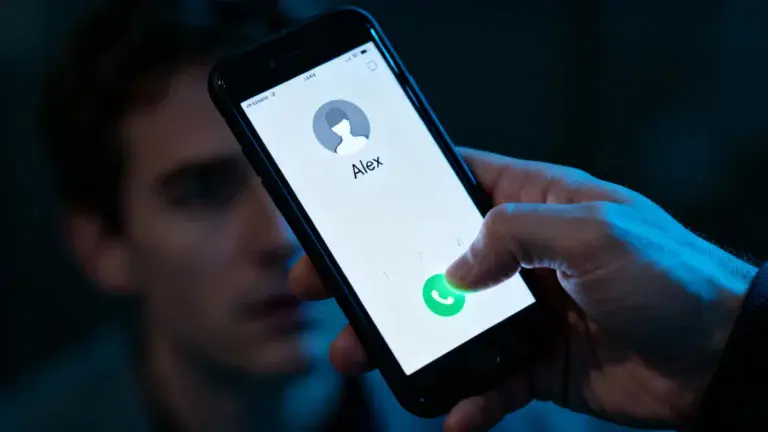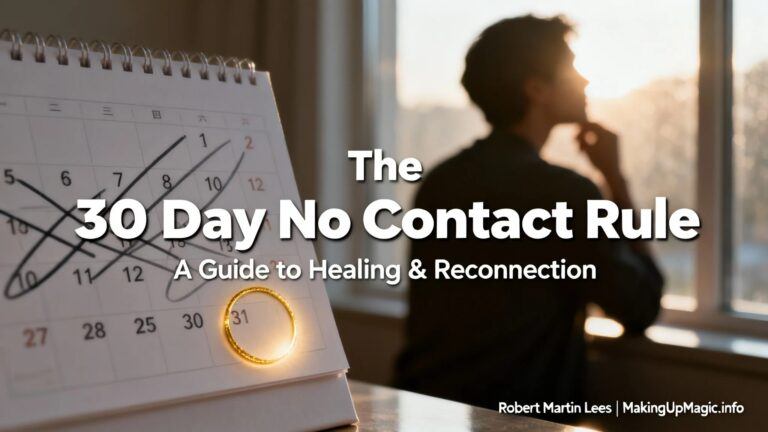That feeling is heavy, isn’t it? The replaying of moments in your head, the cringe at something you said, the deep, aching regret for the pain you caused. It’s a weight that follows you around, a constant reminder of where things went wrong.
Part of you is desperate to reach out, to say “I’m sorry,” hoping for that magical moment of forgiveness that fixes everything. But another part is terrified. What if you say the wrong thing? What if you make it worse? What if they don’t reply at all?
I get it. An apology in this situation feels like walking a tightrope. But I’m going to tell you something most people won’t: **A true apology isn’t about getting them back. It’s about giving them peace.**
It’s an act of accountability, not a tactic. And when you approach it from that place of genuine ownership, it becomes the most powerful and healing move you can make—for both of you. Here’s how to do it the right way.
On This Page:
Step 1: The Pre-Apology – Get Your Mind Right
Before you even think about typing a single word, you need to do the internal work. If you skip this, your apology will feel hollow and self-serving. Ask yourself these questions with brutal honesty:
- What am I *really* apologizing for? Be specific. “For everything” is a cop-out. Was it for being emotionally distant? For breaking a promise? For a specific argument? Name the action.
- Why am I doing this? If the honest answer is “to get them to talk to me again” or “to make them forgive me,” you’re not ready. The right reason is: “Because I recognize I caused pain, and they deserve to have that acknowledged, with no strings attached.”
- What do I expect in return? The correct answer is: Nothing. A true apology is a gift. You cannot demand forgiveness, a conversation, or a second chance. You must be prepared for them to say “thank you” and nothing more, or even to not reply at all.
Only when you can apologize without needing anything in return are you truly ready to deliver it.
Step 2: The Anatomy of an Accountable Apology (The 4 ‘A’s)
A real apology isn’t just the words “I’m sorry.” It has a structure that demonstrates true understanding and respect. Follow this framework.
1. Acknowledge the Specific Action
Clearly state what you did wrong. This shows you’ve reflected and you’re not just giving a blanket apology.
Instead of: “I’m sorry for how things ended.”
Say: “I want to apologize for how emotionally distant I was during the last few months of our relationship.”
2. Articulate the Impact on Them
This is the most critical and often-missed step. Show them you understand *how your actions made them feel*. This validates their experience.
Instead of: “I know I messed up.”
Say: “I know that my distance must have made you feel lonely, unimportant, and confused. You deserved better than that.”
3. Accept Full Responsibility
No excuses. No “but you…” statements. This is about your side of the street. Own your actions completely.
Instead of: “I was really stressed with work, but I’m sorry I was grumpy.”
Say: “There’s no excuse for my behavior. I let my stress control how I treated you, and that was unfair and hurtful.”
4. Ask Nothing in Return
End your apology without putting any pressure on them. Give them the power by making it clear that no response is necessary.
Instead of: “I hope you can forgive me. Can we talk?”
Say: “I just wanted you to hear that from me. I’m not expecting a reply, but I hope you’re doing okay.”
Step 3: Choose Your Method (Text, Letter, or In Person)
The delivery method matters. Choose based on the severity of the issue and the current state of your communication.
- The Text Message: Best for less severe mistakes or if you’ve been in No Contact and need a low-pressure way to break the silence. It’s less intimidating for them to receive. (See our guide on what to text your ex for more context).
- The Handwritten Letter: The most powerful method for serious betrayals of trust. It shows immense effort and allows you to articulate your thoughts perfectly without being interrupted. It gives them space to process it privately.
- In Person: Only attempt this if you are on decent speaking terms and the breakup wasn’t explosive. It can be very effective, but also high-pressure. Never, ever show up unannounced.
Unsure if an apology is the right move right now? Every situation is different. Take our 60-second Breakup Clarity Quiz to get a personalized recommendation based on your specific circumstances.
Step 4: What to Do After You Apologize
Once you’ve sent the message, your job is to let go. This is the hardest part.
- Do Not Double-Text: Sending a “?” or “Did you get my message?” completely undoes the “no-pressure” gift of your apology.
- Live Your Life: The best way to show your apology is sincere is to demonstrate change. Focus on your growth. Let them see, from a distance, that you’re working on the very things you apologized for.
- Let Them Come to You: A genuine apology can be a powerful seed. But you have to give it time and space to grow. If they are ready to talk, they will reach out. Your silence after the apology gives them the safety to do so.
Remember, this process is about closing a painful chapter with integrity. It’s about cleaning up your side of the street so you can move forward, whether that’s together or apart, with a clear conscience and newfound self-respect.
Frequently Asked Questions (FAQ)
Q: How long after a breakup should I apologize?
A: It’s best to wait until after an initial period of No Contact (usually 3-4 weeks). Apologizing too soon can seem desperate and insincere. Waiting allows both of you to process the initial emotions and ensures your apology comes from a place of calm reflection, not panic.
Q: What if they don’t accept my apology or reply angrily?
A: Their reaction is not in your control, and you must be prepared for this. If they reply with anger, the best response is calm and validating. Say something like, “I understand why you feel that way. I just wanted to take responsibility for my part.” Do not get into a debate. Your goal was to deliver the apology, not to manage their reaction.
Q: Should I apologize if I wasn’t the one who ended the relationship?
A: Yes. It’s incredibly rare for one person to be 100% at fault in a breakup. Even if you were the one who was left, there are likely things you could have done better. Apologizing for your specific part shows immense maturity and can completely change the dynamic between you and your ex. It’s about accountability, not blame.







